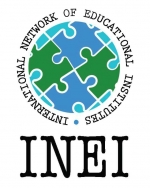Knowledge Mobilisation

About the IALEI research theme 2011
The project for 2011 is to explore what we know about the most effective mechanisms for universities, as primary producers of education research, to move research into policy and practice. The term ‘knowledge mobilisation’ is one of a number of terms used to describe the processes through which research influences policy and practice. There has been a huge expansion of interest in this issue around the world, on the part of universities, research funding agencies, governments, and other education partners. But the flurry of activity is not yet matched by reliable knowledge about what is being done or how effective various approaches are.
Recommendations

Conference and symposium 2011
IALEI researchers engaged in the 2011 theme
The names of the researchers engaged in the 2011 project are:
Australia, Melbourne Graduate School of Education, University of Melbourne: Professor John Polesel
Brazil, Faculty of Education, University of Sao Paulo: Professor Romualdo Portela de Oliveira
Canada, Ontario Institute for Studies in Education, University of Toronto: Professor Ben Levin and Graduate Assistant Jie Qi
China, School of Education, Beijing Normal University: Professor Hong Chengwen
Denmark, Department of Education, Aarhus University: Executive Director Claus Holm
South Africa, School of Education, University of Cape Town: Professor Johan Müller and Dr. Ursula Hoadley
South Korea, Department of Education, Seoul National University: Professor Lynn Ilon
Singapore, National Institute of Education, Nanyang Technological University: Associate Professor Teh Laik Woon
UK, Institute of Education, University of London: Professor David Gough
USA, School of Education, University of Wisconsin Madison: Professor Sarah Mason
Chair of this IALEI research team is Professor Ben Levin, Ontario Institute for Studies in Education, University of Toronto.



